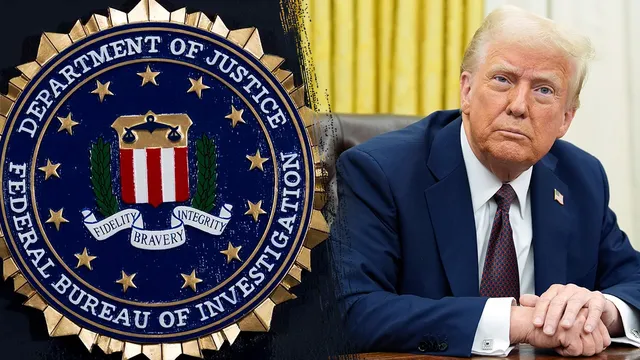
Judge orders Trump administration to return wrongly deported man to the U.S
2025-04-26 04:09- U.S. District Judge Paula Xinis ordered the Trump administration to return Kilmar Abrego Garcia to the United States after a mistaken deportation.
- The Trump administration acknowledged it erred in deporting Garcia, who maintains he has not committed any crimes.
- Court challenges are intensifying against the Trump administration’s immigration policies, highlighting the need for upholding migrants' rights.
Express your sentiment!
Insights
In the United States, a series of court rulings have emerged regarding the deportation of Kilmar Abrego Garcia to El Salvador, which has sparked significant legal challenges. U.S. District Judge Paula Xinis has publicly criticized the Trump administration for acting in 'bad faith' by failing to provide information to facilitate Garcia's return after a mistaken deportation. Xinis's ruling illustrates a broader conflict over immigration policy, particularly pertaining to individuals like Garcia, who allegedly faced wrongful removal despite maintaining asylum claims. The government acknowledged that his deportation was an administrative mistake, but it has insisted Garcia is associated with the MS-13 gang—a claim that lacks substantiation as he has neither been charged nor convicted of any crime. In her proceedings, Judge Xinis has mandated that the administration adhere to court orders for Garcia's return and provide updates regarding compliance. The implications of this case potentially extend beyond Garcia, challenging the administration's deportation policies and procedural integrity in handling immigrant cases. Weeks later, in a related ruling, Judge Stephanie Gallagher similarly compelled the government to reverse the deportation of another migrant, Cristian, who was also sent to El Salvador in violation of a legal settlement regarding asylum seekers. These federal court challenges signify a mounting pushback against the Trump administration's stringent immigration practices, underscoring tensions in the judicial system aimed at enforcing the rights of migrants against executive actions.
Contexts
The MS-13 gang, known for its violent criminal activities, predominantly operates in the United States and Central America, particularly in El Salvador, Honduras, and Guatemala. Established in the 1980s in Los Angeles by Salvadoran immigrants, the gang has expanded its influence across various states, significantly impacting communities through drug trafficking, extortion, and violent crimes. The group is notorious for its brutal tactics, including murder and intimidation, which they employ to maintain control over territories and enforce loyalty among members. The U.S. Department of Justice has identified MS-13 as one of the most dangerous transnational criminal organizations, posing a substantial threat to national security due to its extensive networks and violent methods. Law enforcement agencies are continually working to dismantle their operations, but the complexities of immigration and deportation laws often complicate efforts to address the gang's influence effectively. Immigration laws play a crucial role in shaping the landscape of gang activity in the U.S. Many members of MS-13 entered the country as undocumented immigrants, fleeing violence and instability in their home countries. While U.S. deportation policies aim to remove criminal elements from the nation, they often neglect the socio-economic factors that contribute to gang membership. Critics argue that aggressive deportation efforts can exacerbate violence in nations like El Salvador, where returnees may find themselves with limited support and reintegrate into gangs for survival. Consequently, the challenge lies not only in removing gang members but also in addressing the root causes of migration that lead individuals to join such organizations. In recent years, changes in immigration policy have heightened the focus on gang-related crimes, leading to increased surveillance and deportation of suspected members. The Trump administration, for example, implemented stricter immigration enforcement policies, which included prioritizing the deportation of individuals affiliated with gangs like MS-13. These policies were met with considerable debate, as proponents argued that it would enhance public safety, while detractors pointed out the potential humanitarian crisis resulting from mass deportations and the lack of comprehensive immigration reform. The political landscape continues to evolve, impacting how immigration and gang-related issues are addressed in contemporary discourse. To effectively combat the influence of MS-13, a multifaceted approach that involves both law enforcement strategies and socio-economic interventions is necessary. Efforts to strengthen community resilience, provide educational opportunities, and create pathways for legal immigration may reduce individuals' reliance on gangs for support and belonging. Cooperation between the U.S. and Central American governments is also pivotal in creating comprehensive solutions that tackle gang violence, improve economic conditions, and promote safe migration practices. As the national conversation around immigration reform progresses, understanding the nuanced relationship between MS-13, immigration laws, and community welfare will be essential in formulating effective policies that not only focus on deportation but also address the underlying challenges faced by individuals in these communities.